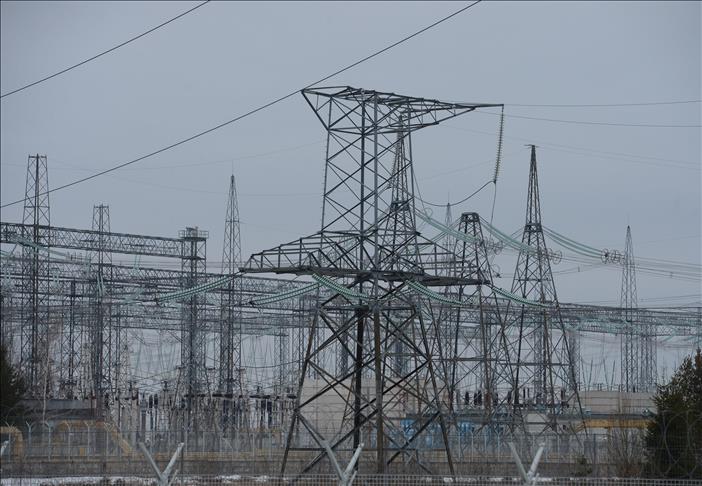
BUENOS AIRES
Argentina’s government sought to downplay concerns on Friday related to a planned reduction in natural gas and water subsidies as people worry about higher bills and a slowing economy.
The government will gradually cut the state subsidies on these utilities by an average of 20 percent starting in April.
This will hit households with increases of as much as 162 percent on gas bills and 306 percent for water, the Planning Ministry said in a presentation on Thursday.
The announcement led opposition leaders to warn people of a “huge utility rate hike,” estimating increases of as much as 400 percent.
Economy Minister Axel Kicillof, who announced the subsidy reduction on Thursday, said on Friday that such claims were unfounded.
“It’s not a huge utility rate hike, it is a reduction of differential subsidies,” he said on Radio 10. “Those that consume the least will get 20 percent reduction in the subsidies and those that consume the most will get an 80 percent reduction.”
He said the subsidies are not being totally removed but will instead be redirected to “those that no longer need them to those that still do.”
The plan has received mixed responses, with many orthodox economists saying the cuts are needed to narrow the fiscal deficit, which has widened to 2 percent of gross domestic product this year from a surplus between 2003 and 2011.
About a fifth of public spending goes on utility subsidies that the government first introduced in 2003 to promote consumer spending as a driver of economic growth. With low utility bills, among the lowest in the world, consumers have more disposable income to spend on goods and services and that helped revitalize the economy after the 2001-02 crisis.
The strategy helped spur robust economic growth between 2003 and 2011, aided too by record international prices of the country’s main export: soybeans.
But now it appears that President Cristina Fernandez de Kirchner is changing economic course to shore up public finances and rebuild investor trust.
Her administration has devalued the currency 20 percent against the dollar since November, raised interest rates, come clean on inflation data after years of under reporting the numbers and started to settle debts and lawsuits with companies and creditors.
Kicillof said the gas and water subsidy cuts will reduce public spending by up to 13 billion pesos ($1.2 billion). But some of those savings will go toward welfare programs.
He said that other subsidies will be cut, including those on electricity and public transport.
David Rees, an emerging markets economist at Capital Economics in London, said more needs to be done.
“Argentina is in the midst of a slow-burning balance of payments crisis,” he wrote Friday in a note to clients. “Years of profligate (and monetized) populist government spending have manifested themselves in rampant inflation and contributed to major distortions in the economy.”
While foreign reserves have stabilized after dropping to a seven-year low, inflation is expected to surpass 40 percent annualized this year after hitting 35 percent in February, according to data compiled by opposition lawmakers.
The utility rate hikes will speed up inflation in the short term by three to four percentage points, according to Aldo Pignanelli, an economist and former central bank president.
But over the long term the higher utility rates will reduce inflation. This is because the government has financed the subsidies by printing pesos, which increases money supply and hence inflation, he said on Radio America.
A swelling concern, however, is that the higher utility bills could push the country into recession as people slash spending on the decline in disposable income.
Most people say the economy has stagnated or is in recession, according to an opinion poll by Insomnia Consultores, a pollster. It found that 8 out of the 10 respondents in the poll described the economy that way, while three out of four said they don’t expect to be able to cover their costs this year.
englishnews@aa.com.tr


